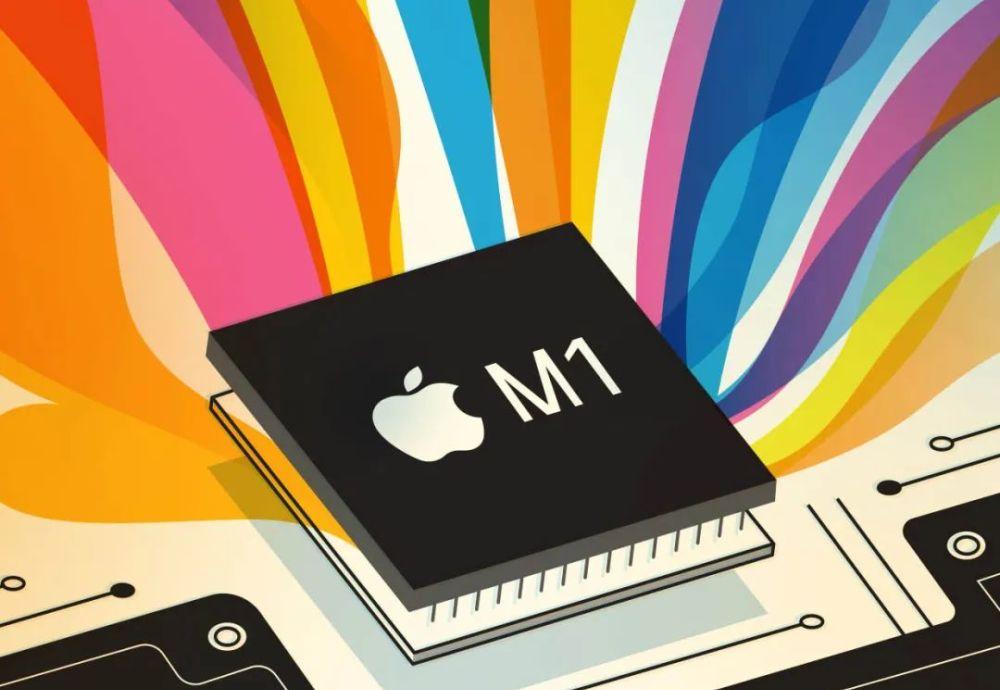As we all know, Apple has a lot of achievements in the field of self-developed chips.
In the past decade, Apple has launched a number of self-developed series of chips.
Including the A-series chips of the iPhone, and the M-series chips of the Mac.

The changes brought by the self-developed chip to Apple are obvious to all.
The iPhone has always been the "king of performance" of smartphones, leading the industry in performance by an average of more than a year.
The addition of the M1 series of chips has also led to a rapid increase in the performance of Mac computers.
In addition to performance chips, Apple has also been committed to the development of functional chips.
Among them, the baseband chip is a key component that determines the quality of mobile phone calls and data transmission speed, which will directly affect the mobile phone signal.
According to various rumors from the outside world before, Apple has been vigorously developing the baseband chip of the iPhone.
According to the latest report just released by Bloomberg, Apple is recruiting engineers for its new office in Southern California to develop its self-developed wireless chip.
The chips will replace components provided by Broadcom, Qualcomm and Skyworks, and Apple wants its employees to have experience with baseband chips and other wireless semiconductors.
This means that Apple is accelerating the pace of baseband and wireless chip research and development.
The engineers will work on radios, RF integrated circuits, and wireless systems-on-chip and SoC chips, while Apple will also develop semiconductor components for connecting Bluetooth and WiFi.
These chips are currently supplied by vendors such as Broadcom, Qualcomm and Skyworks.
In fact, in terms of wireless chips, Apple has many years of experience, such as AirPods and Apple Watch have included custom parts that can be paired with devices.
The U1 ultra-wideband chip equipped with iPhone 12 and iPhone 13 can more accurately locate the position of airTag.
Apple's new wireless chip research and development is based on the research and development of previous related chips.
As early as 2020, Apple signed a three-and-a-half-year cooperation agreement with Broadcom.
Under the terms of the agreement, Broadcom will provide Apple with high-performance wireless components and modules.
The contract will expire in 2023.
This also means that after the contract expires, Apple will most likely no longer use Broadcom's wireless components, but use self-developed chips instead.
There is no doubt that Apple's ultimate goal is to develop its own wireless chip.
In addition to the baseband chip, the components of WiFi and Bluetooth will also gradually complete their own research.
According to the previous news provided by Qualcomm, the share of baseband chips provided for the iPhone will drop to 20% in 2023.
This means that by 2023, 80% of the baseband chips will be supplied by Apple itself.
In 2019, Apple acquired Intel's baseband business for $1 billion, preparing for the complete replacement of Qualcomm.
And Apple whistleblower Guo Mingxi, who has always been reliable, also said that Apple will be equipped with its self-developed 5G baseband chip on the iPhone as early as 2023.
From the information currently available, it is basically certain that Apple will launch the first self-developed baseband chip in 2023 and gradually abandon Qualcomm's chip supply.
The outside world speculates that Apple will first use self-developed baseband chips on the Pro model, and then expand to all models.
Admittedly, even if the iPhone uses a self-developed baseband chip, it does not necessarily have a more intuitive improvement in the signal.
But the purpose of Apple's self-developed baseband chip is naturally to optimize signal and network problems.
It is believed that the self-developed baseband chip is just the beginning, and Apple will continue to improve and optimize this technology until the long-criticized signal problem is completely solved.
For more information about the use of Apple device knowledge and skills and to inquire about the warranty, you can pay attention to my WeChat public account: cxkj-001 (fruit powder club).